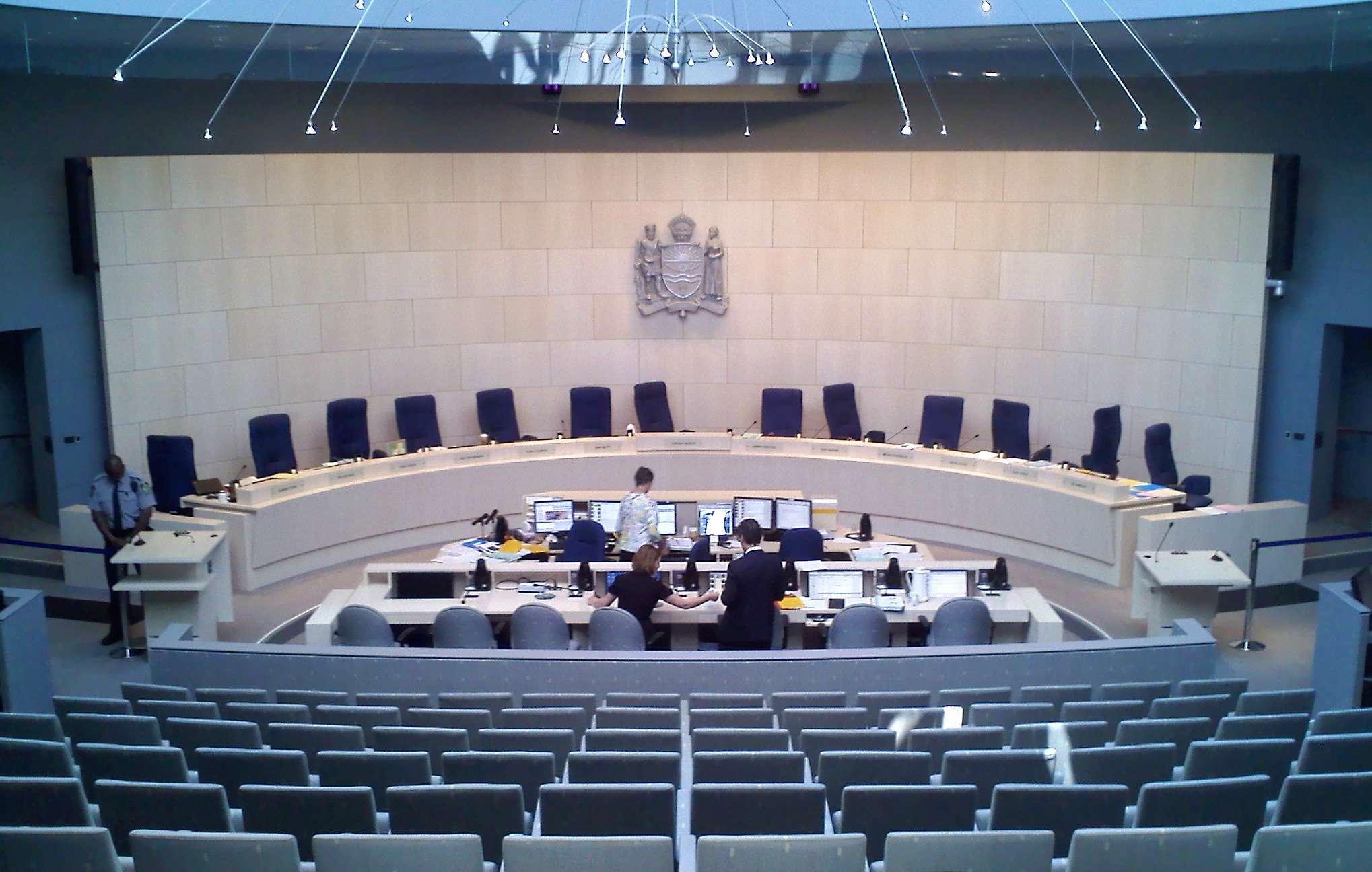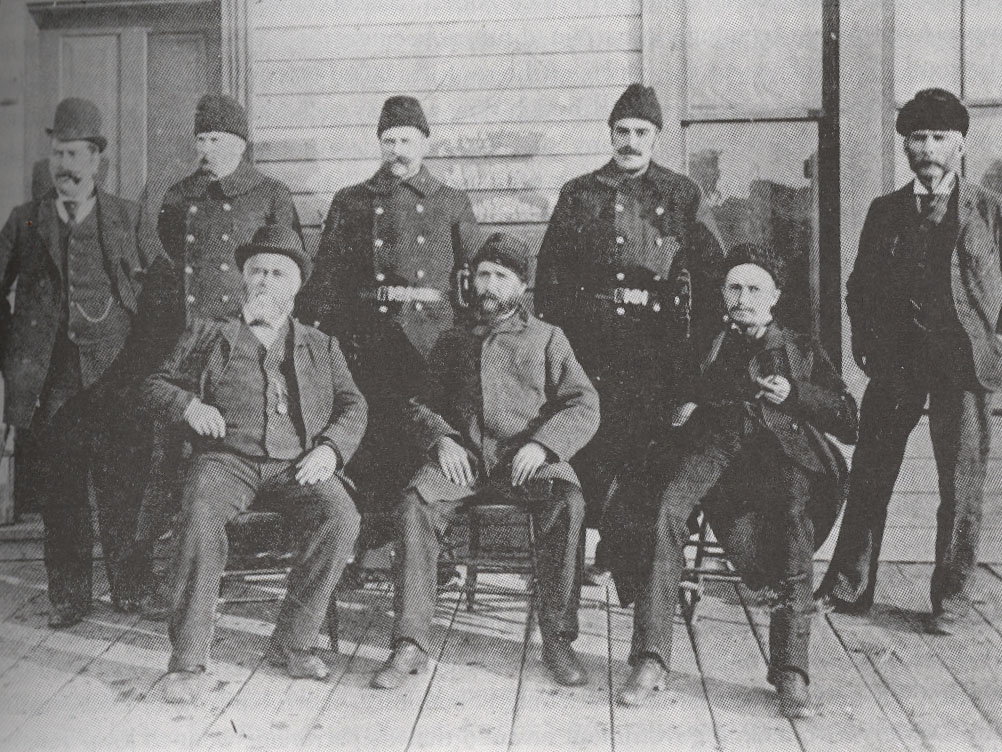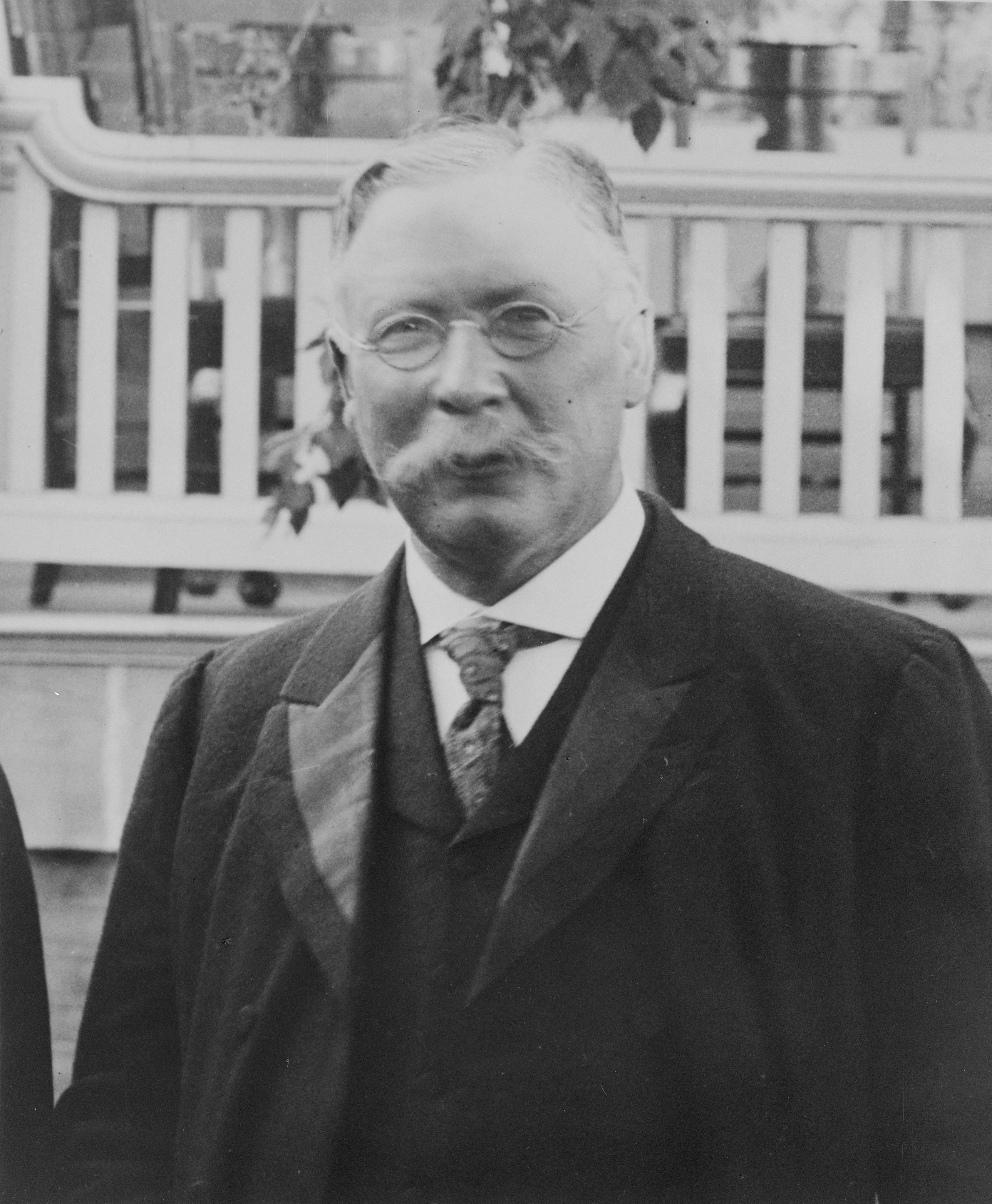|
Charles Wilson Cross
Charles Wilson Cross (November 30, 1872 – June 2, 1928) was a Canadian politician who served in the Legislative Assembly of Alberta and the House of Commons of Canada. He was also the first Attorney-General of Alberta. Born in Ontario, he studied law at Osgoode Hall Law School before coming west to practise in Edmonton. He became active with the Liberal Party of Canada, and when Alberta was created in 1905 he was chosen by Premier Alexander Cameron Rutherford to be its first Attorney-General. Implicated in the Alberta and Great Waterways Railway scandal, he resigned in 1910 along with the rest of Rutherford's government. As a backbencher, he became the leader of Liberals opposed to the government of Rutherford's successor, Arthur Sifton, until Sifton re-appointed him Attorney-General in 1912. Cross served in this capacity under Sifton and his successor Charles Stewart until 1918, when Stewart fired him after receiving no response to his request for Cross's resignation. C ... [...More Info...] [...Related Items...] OR: [Wikipedia] [Google] [Baidu] |
House Of Commons Of Canada
The House of Commons of Canada (french: Chambre des communes du Canada) is the lower house of the Parliament of Canada. Together with the Crown and the Senate of Canada, they comprise the bicameral legislature of Canada. The House of Commons is a democratically elected body whose members are known as members of Parliament (MPs). There have been 338 MPs since the most recent electoral district redistribution for the 2015 federal election, which saw the addition of 30 seats. Members are elected by simple plurality ("first-past-the-post" system) in each of the country's electoral districts, which are colloquially known as ''ridings''. MPs may hold office until Parliament is dissolved and serve for constitutionally limited terms of up to five years after an election. Historically, however, terms have ended before their expiry and the sitting government has typically dissolved parliament within four years of an election according to a long-standing convention. In any case, an ac ... [...More Info...] [...Related Items...] OR: [Wikipedia] [Google] [Baidu] |
University Of Toronto
The University of Toronto (UToronto or U of T) is a public research university in Toronto, Ontario, Canada, located on the grounds that surround Queen's Park. It was founded by royal charter in 1827 as King's College, the first institution of higher learning in Upper Canada. Originally controlled by the Church of England, the university assumed its present name in 1850 upon becoming a secular institution. As a collegiate university, it comprises eleven colleges each with substantial autonomy on financial and institutional affairs and significant differences in character and history. The university maintains three campuses, the oldest of which, St. George, is located in downtown Toronto. The other two satellite campuses are located in Scarborough and Mississauga. The University of Toronto offers over 700 undergraduate and 200 graduate programs. In all major rankings, the university consistently ranks in the top ten public universities in the world and as the top university ... [...More Info...] [...Related Items...] OR: [Wikipedia] [Google] [Baidu] |
Frank Oliver (politician)
Francis "Frank" Oliver (born Francis Robert Oliver Bowsfield; September 1, 1853 – March 31, 1933) was a Canadian federal minister, politician, and journalist/publisher from the Northwest Territories and later Alberta. As Minister of the Interior (Canada), Minister of the Interior, he was responsible for discriminatory Canadian government policies that targeted First Nations in Canada, First Nations' land rights and Black immigration. Early life Oliver was born Francis Bowsfield in Peel County, Ontario, Peel County, Canada West, just west of Toronto. He was the son of Allan Bowsfield and Hannah (Anna) Lundy. Some disagreement in the family made him drop the name Bowsfield and adopt the name of his grandmother, Nancy Oliver Lundy. Oliver studied journalism in Toronto, Ontario. In 1880, he moved west and founded the ''Edmonton Bulletin'' with his wife, Harriet Dunlop (1863–1943). When the first issue was printed on December 6, 1880, it became the first newspaper in what is n ... [...More Info...] [...Related Items...] OR: [Wikipedia] [Google] [Baidu] |
Ottawa
Ottawa (, ; Canadian French: ) is the capital city of Canada. It is located at the confluence of the Ottawa River and the Rideau River in the southern portion of the province of Ontario. Ottawa borders Gatineau, Quebec, and forms the core of the Ottawa–Gatineau census metropolitan area (CMA) and the National Capital Region (NCR). Ottawa had a city population of 1,017,449 and a metropolitan population of 1,488,307, making it the fourth-largest city and fourth-largest metropolitan area in Canada. Ottawa is the political centre of Canada and headquarters to the federal government. The city houses numerous foreign embassies, key buildings, organizations, and institutions of Canada's government, including the Parliament of Canada, the Supreme Court, the residence of Canada's viceroy, and Office of the Prime Minister. Founded in 1826 as Bytown, and incorporated as Ottawa in 1855, its original boundaries were expanded through numerous annexations and were ultimately ... [...More Info...] [...Related Items...] OR: [Wikipedia] [Google] [Baidu] |
Edmonton City Council
The Edmonton City Council is the governing body of the City of Edmonton, Alberta, Canada. Edmonton currently has one mayor and twelve city councillors. Elections are held every four years. The most recent was held in 2021, and the next is in 2025. The mayor is elected across the whole city, through the First Past the Post plurality voting system. Councillors are elected one per ward, a division of the city, through the First Past the Post plurality voting system. On July 22, 2009, City Council voted to change the electoral system of six wards to a system of 12 wards; each represented by a single councillor. The changes took effect in the 2010 election. In the 2010 election, Edmonton was divided into 12 wards each electing one councillor. Before that system was adopted in 1980, the city at different times used a variety of different electoral systems for the election of its councillors: two different systems of wards, one using FPTP, the other Block Voting systems; at-large elec ... [...More Info...] [...Related Items...] OR: [Wikipedia] [Google] [Baidu] |
Northwest Territories
The Northwest Territories (abbreviated ''NT'' or ''NWT''; french: Territoires du Nord-Ouest, formerly ''North-Western Territory'' and ''North-West Territories'' and namely shortened as ''Northwest Territory'') is a federal territory of Canada. At a land area of approximately and a 2016 census population of 41,790, it is the second-largest and the most populous of the three territories in Northern Canada. Its estimated population as of 2022 is 45,605. Yellowknife is the capital, most populous community, and only city in the territory; its population was 19,569 as of the 2016 census. It became the territorial capital in 1967, following recommendations by the Carrothers Commission. The Northwest Territories, a portion of the old North-Western Territory, entered the Canadian Confederation on July 15, 1870. Since then, the territory has been divided four times to create new provinces and territories or enlarge existing ones. Its current borders date from April 1, 1999, when the ... [...More Info...] [...Related Items...] OR: [Wikipedia] [Google] [Baidu] |
William Short (Alberta Politician)
William Short (January 11, 1866 – January 27, 1926) was a politician in Alberta, Canada and a two time mayor of Edmonton. Biography Short was born July 11, 1866 near Elora, Ontario and studied law at the University of Toronto before coming to Alberta in 1889. He articled to James Alexander Lougheed from 1891 until 1894, when he was called to the provincial bar. That year, he moved to Edmonton and opened a law practice before partnering with Charles Cross in 1900 to form Short & Cross (which still exists today under the name Duncan Craig LLP). He married Henrietta McMaster on February 7, 1900; the pair had one son and one daughter. In 1899, Short was elected to sit as a public school trustee, which he did until he was acclaimed as mayor during the 1901 election. He faced no opposition to his re-election bid in 1902, and defeated his former school board colleague H. C. Taylor in the 1903 election to retain the title. This allowed him to be mayor when Edmonton's stat ... [...More Info...] [...Related Items...] OR: [Wikipedia] [Google] [Baidu] |
Upper Canada College
Upper Canada College (UCC) is an elite, all-boys, private school in Toronto, Ontario, operating under the International Baccalaureate program. The college is widely described as the country's most prestigious preparatory school, and has produced many notable graduates. UCC has 1,200 students and is a highly selective school, accepting approximately 15% of all applicants in 2019. The school attracts the best and brightest students from all around the world and has a generous financial aid program, with more than $5 million being awarded annually to Canadian citizens. The secondary school segment is divided into ten houses; eight are for day students and the remaining two are for boarding students. Aside from the main structure, with its dominant clock tower, the Toronto campus has a number of sports facilities, staff and faculty residences, and buildings for other purposes. UCC also owns and operates an outdoor education campus in Norval, Ontario. It is the oldest independent s ... [...More Info...] [...Related Items...] OR: [Wikipedia] [Google] [Baidu] |
Charles Stewart (premier)
Charles Stewart, (August 26, 1868 – December 6, 1946) was a Canadian politician who served as the third premier of Alberta from 1917 until 1921. Born in Strabane, Ontario, in then Wentworth County (now part of Hamilton), Stewart was a farmer who moved west to Alberta after his farm was destroyed by a storm. There he became active in politics and was elected to the Legislative Assembly of Alberta in the 1909 election. He served as Minister of Public Works and Minister of Municipal Affairs—the first person to hold the latter position in Alberta—in the government of Arthur Sifton. When Sifton left provincial politics in 1917 to join the federal cabinet, Stewart was named his replacement. As premier, Stewart tried to hold together his Liberal Party, which was divided by the Conscription Crisis of 1917. He endeavoured to enforce prohibition of alcoholic beverages, which had been enshrined in law by a referendum during Sifton's premiership, but found that the law was not ... [...More Info...] [...Related Items...] OR: [Wikipedia] [Google] [Baidu] |
Arthur Sifton
Arthur Lewis Watkins Sifton (October 26, 1858 – January 21, 1921) was a Canadian lawyer, judge and politician who served as the second premier of Alberta from 1910 until 1917. He became a minister in the federal cabinet of Canada thereafter. Born in Canada West (now Ontario), he grew up there and in Winnipeg, where he became a lawyer. He subsequently practised law with his brother Clifford Sifton in Brandon, where he was also active in municipal politics. He moved west to Prince Albert in 1885 and to Calgary in 1889. There, he was elected to the 4th and 5th North-West Legislative Assemblies; he served as a minister in the government of premier Frederick Haultain. In 1903, the federal government, at the instigation of his brother (who was then one of its ministers), made Sifton the Chief Justice of the Northwest Territories. After Alberta was created out of a portion of the Northwest Territories in 1905, Sifton became the first Chief Justice of Alberta in 1907 an ... [...More Info...] [...Related Items...] OR: [Wikipedia] [Google] [Baidu] |
Backbencher
In Westminster and other parliamentary systems, a backbencher is a member of parliament (MP) or a legislator who occupies no governmental office and is not a frontbench spokesperson in the Opposition, being instead simply a member of the "rank and file". The term dates from 1855. The term derives from the fact that they sit physically behind the frontbench in the House of Commons. A backbencher may be a new parliamentary member yet to receive high office, a senior figure dropped from government, someone who for whatever reason is not chosen to sit in the government or an opposition spokesperson (such as a shadow cabinet if one exists), or someone who prefers to be a background influence, not in the spotlight. By extension, those who are not reliable supporters of all of their party's goals and policies and have resigned or been forced to resign may be relegated to the back benches. For example, in British political events, Clive Lewis became a backbencher after resigning ... [...More Info...] [...Related Items...] OR: [Wikipedia] [Google] [Baidu] |
Alberta And Great Waterways Railway Scandal
The Alberta and Great Waterways Railway Scandal was a political scandal in Alberta, Canada in 1910, which forced the resignation of Liberal premier Alexander Cameron Rutherford. Rutherford and his government were accused of giving loan guarantees to private interests for the construction of the Alberta and Great Waterways (A&GW) Railway that substantially exceeded the cost of construction, and which paid interest considerably above the market rate. They were also accused of exercising insufficient oversight over the railway's operations. The scandal split the Liberal Party: Rutherford's Minister of Public Works, William Henry Cushing, resigned from the government and publicly attacked its railway policy, and a large portion of the Liberal caucus voted to defeat the government in the Legislative Assembly of Alberta. The government survived all of these votes. Rutherford largely placated the legislature by appointing a royal commission to investigate the affair, but pressure fro ... [...More Info...] [...Related Items...] OR: [Wikipedia] [Google] [Baidu] |







_2007.jpg)
